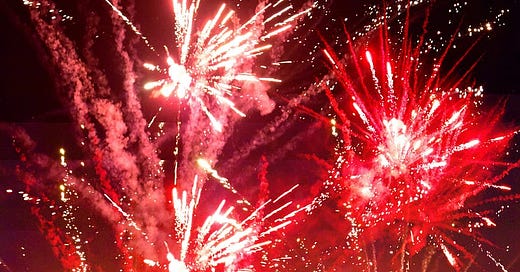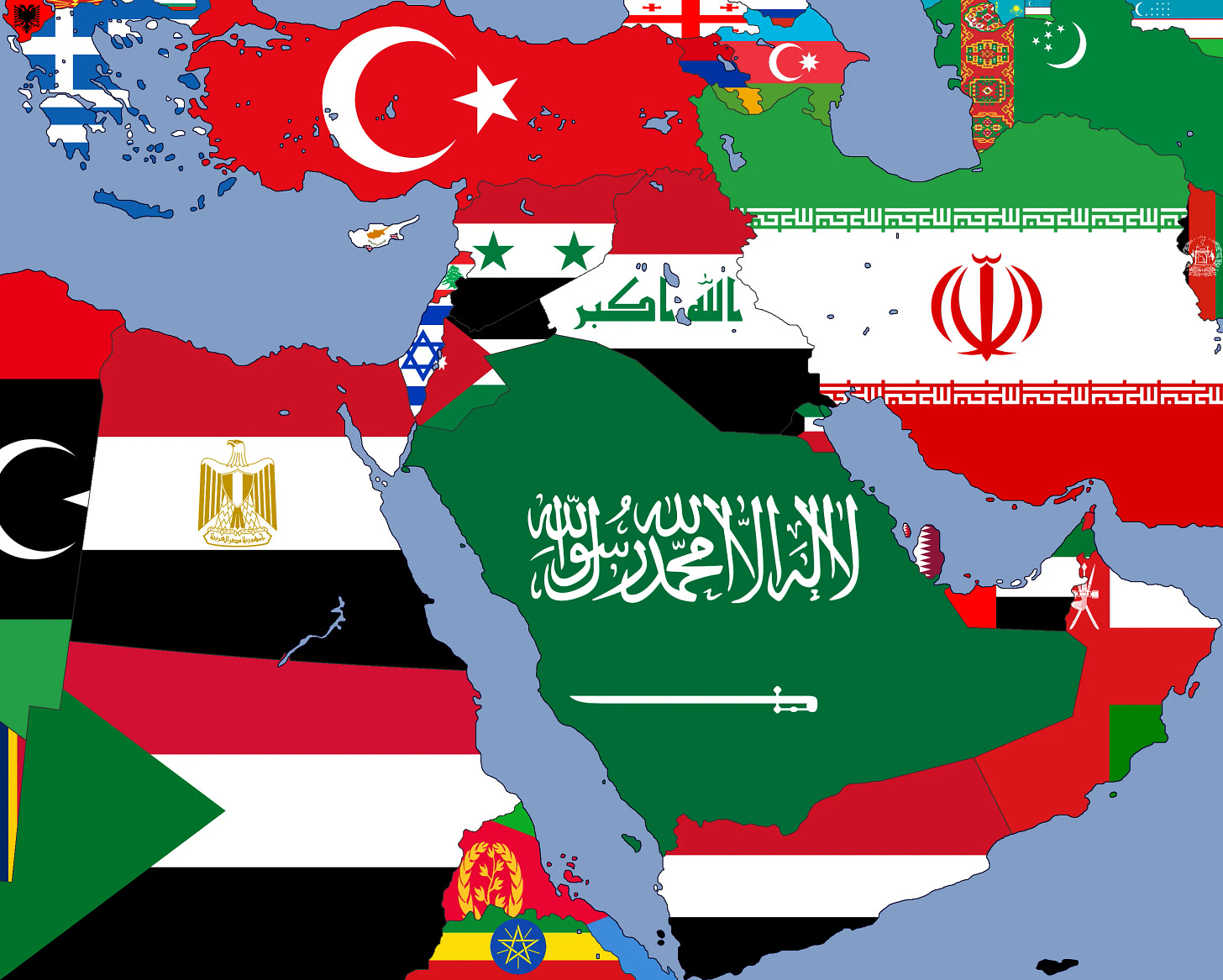Celebrating New Beginnings
A new year always bring with it a feeling of opportunity and new hope.
“Hope” is the thing with feathers - That perches in the soul - And sings the tune without the words - And never stops..." Emily Dickinson written around 1861
Photo by Jordan Ling on Unsplash
What I believe Emily Dickinson is doing here is metaphorically transforming the thing with feathers, into a strong-willed bird that lives deep within each human soul—and sings its song no matter what. It that way, it keeps alive within us the hope of things to come, the hope of something better. It’s a very powerful 4 letter word that when lost or broken leaves the soul crestfallen.
Hope is an essential ingredient for humanity. Where there is no hope, there is often the absence of will. The will to go on. The will to overcome struggles. The will to believe in something more.
The concept of hope is critical to us all, but no where is hope more central to humanity than places like Sudan, Gaza, or Ukraine. Places where every day is a struggle. The very essentials we take for granted are anything but routine. Food, clean water, safety, privacy, human dignity.
My hope is that we all find hope imbedded within our souls. Everyone and especially those in war torn places around the world that it seems the hardest to keep going. They especially need the bird, as Emily Dickinson says, that sings the tune and never stops.
Baba! Where is Palestine on the Map?!
How I answered Yaffa, my 5-year-old girl
By Nour Alhakk
One sunny afternoon, I went to the supermarket with my little girl. As we walked down the aisles filled with colorful fruits, vegetables, and all kinds of goodies, something special caught Yaffa’s eye. At the end of the aisle, there was a big, bright world map on display. Yaffa loved looking at maps. She loved imagining all the different places people lived, the animals that roamed, and the different foods that were eaten in each country. Yaffa pointed excitedly at the map. “Look, Baba! There’s the world!” She said, her eyes wide with curiosity. I smiled and nodded. “Yes, my dear, that’s the world.”
Israeli Prime Minister Benjamin Netanyahu holds a map of “The New Middle East” without Palestine during his September 22, 2023 address to the United Nations General Assembly in New York. (Source: X)
Yaffa’s eyes scanned the map, looking for familiar places. She found the big countries and the small ones, but then she furrowed her brow. She looked and looked, but something was missing. “Baba,” she asked with a puzzled expression, “where is Palestine? I can’t see it on the map.”
I knelt down beside her, wrapping my arm around her small shoulders. I could see how much it meant to her, and I thought carefully about how to explain it.
“Yaffa,” I began gently, “Palestine is like the sun.”
Yaffa’s eyes grew even bigger. “Like the sun?” she asked, curious.
“Yes,” I continued. “Sometimes, the sun gets covered by clouds. You can’t see it clearly, and it feels like it’s not there. But we know it’s always there, shining brightly behind those clouds. And just like the sun, Palestine is always in our hearts, even if you can’t see it on this map. Sometimes, it might be hidden, but it never disappears. It’s always there, waiting to shine again.”
Yaffa thought about my words. I think she imagined the warm, glowing sun peeking out from behind fluffy clouds. She smiled, feeling a sense of comfort.
“So, Baba,” Yaffa said, holding my hand, “even if we can’t see Palestine on the map, it’s still there, right?”
I nodded. “That’s right, my love. It’s still there, and it will always be there.”
“No matter what the thieves do …”
“No matter how many words they change …”
“No matter how many cities and villages they rename …”
“Palestine will return.”
“And in Palestine, there is a beautiful city called Yaffa, like your name. Your grandfather’s house is there.”
Yaffa looked up at the map again, and though she couldn’t see Palestine, she knew it was there, shining just like the sun behind the clouds.
As we continued our shopping, Yaffa kept that warm feeling with her, knowing that some things, like the sun and Palestine, are always there, even when they’re hard to see.
And from that day on, whenever she saw the sun, Yaffa would remember my words and feel the special light of Palestine shining in her heart.
Reprinted with consent of the author Nour Alhakk - Originally appeared in Medium - Aug 20, 2024
Remembering some of the Palestinian poets lost in 2024 alone from the military acton in Gaza -
Note: you will see from the list below that many of these poets and writers were killed in their very homes. The gravity of the destruction is like nothing seen since WWII in Europe.
Refaat Alareer
A poet, author, and academic who was killed in an Israeli airstrike in Gaza
Hiba Kamal Abu Nada, A Palestinian poet, novelist, and nutritionist who was killed in the bombings on October 20
Nour al-Din Hajjaj
A poet and writer who was killed by an Israeli airstrike on his home in Al-Shujaiyya on December 2
Shahdah Al-Buhbahan
A Palestinian poet and educational researcher who was killed by an Israeli airstrike in Gaza on November 6
Musaad Arar
A Palestinian folk poet who died on November 11, 2024 at the age of nearly 90
Novelist, poet, and educator Heba Abu Nada, a beloved figure in the Palestinian literary community and the author of the novel Oxygen is Not for the Dead, was killed by an Israeli airstrike in southern Gaza on October 20
Omar Abu Shaweesh
The poet, novelist, and community activist Omar Faris Abu Shaweesh was killed on October 7 during the shelling of the Nuseirat refugee camp in Gaza.
Yousef Dawas
Palestinian writer, journalist, and photographer Yousef Dawas was killed by an Israeli airstrike on his family home in northern Gaza on October 14.
Mustafa Al-Sawwaf
Writer and journalist Mustafa Hassan Mahmoud Al-Sawwaf was killed, alongside several members of his family, when an Israeli shell struck his home on November 18.
Abdullah Al-Aqad
On October 16, writer Abdullah Al-Aqad was killed, alongside his wife and children, when an Israeli shell struck his house in Khan Younis.
Mohammad Abdulrahim Saleh, one of the youngest published poets in Gaza, was killed by an Israeli airstrike on October 10. Born and raised in the Jabalia refugee camp in North Gaza, Saleh was just twenty-one years old at the time of his death.
Saleem Al-Naffar was a renowned poet who advocated for peaceful resistance and whose poetry expressed the struggle of Palestinians to survive and to be remembered in history.
Closing with a poem of my own-
File Folder
by Michael Allyn Wells
It crept across my desk
during the day
flopped on the floor
defied my hands once
surrendered
then in contumacy
sliced
and drew blood
for that I filed it away
in the dark file cabinet
under “S” for stay






